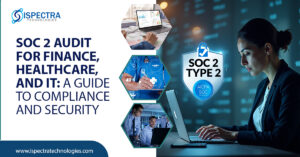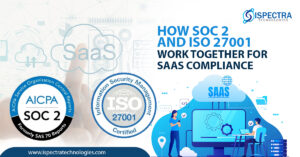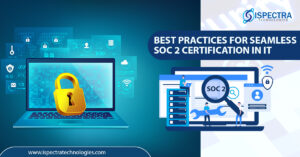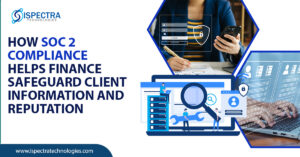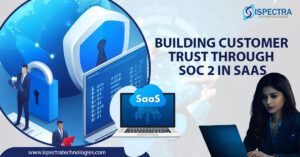How Small Businesses and Start-Ups Can Prepare for SOC 2 Audits with Industry-Specific Tips
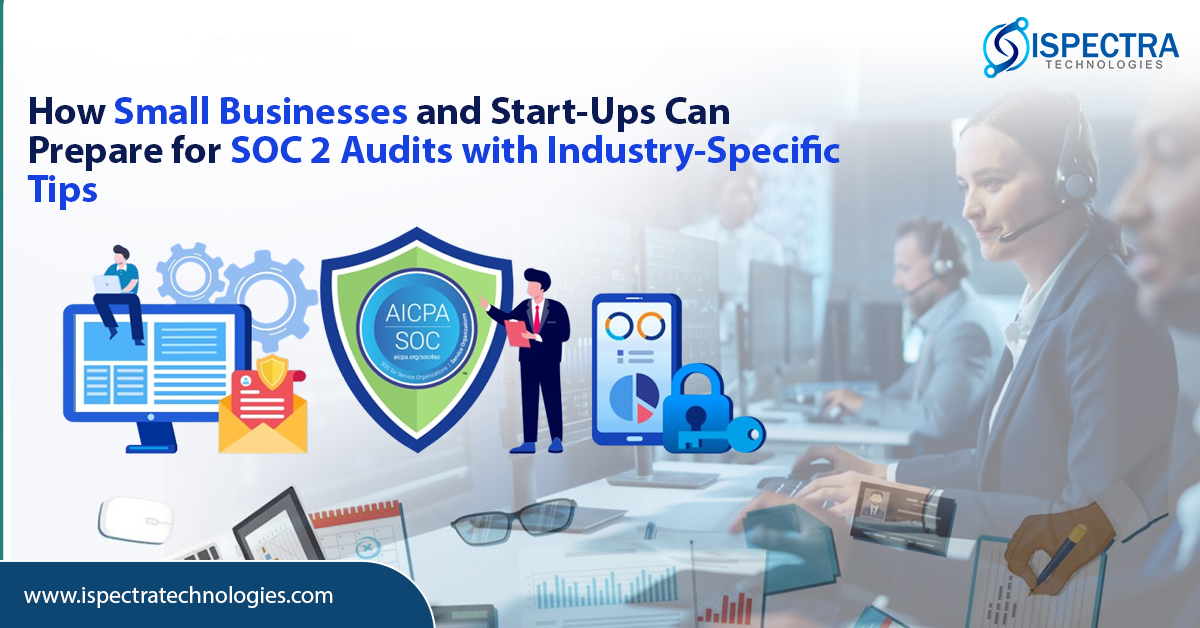
For small businesses and start-ups, SOC 2 compliance is more than a regulatory requirement—it’s a strategic tool for building trust, securing partnerships, and unlocking growth. Whether you operate as a healthcare automation provider, cloud transformation service, or IT solution provider, adhering to SOC 2 standards ensures that your business aligns with the highest levels of data security, availability, and privacy.
In this blog, we’ll explore industry-specific tips to help small businesses and start-ups streamline the SOC 2 audit process and meet evolving expectations for security and compliance.
Why SOC 2 Compliance is Critical for Small Businesses & Start-Ups
SOC 2 compliance demonstrates that your organization follows industry best practices in managing data security, availability, confidentiality, and privacy. It is especially crucial for businesses handling sensitive data or delivering digital services like SaaS platforms, healthcare automation solutions, or cloud services.
Many clients and partners now require SOC 2 reports as part of their due diligence, particularly in industries that must also meet standards like GDPR compliance or ISO 27001 certification. Achieving SOC 2 compliance shows that your company takes cybersecurity seriously and is committed to safeguarding customer information.
General Tips to Prepare for SOC 2 Audits
-
Determine the Scope and Relevant Trust Services Criteria (TSC)
Not every SOC 2 report requires all five TSCs (Security, Availability, Confidentiality, Processing Integrity, Privacy). Identify which criteria align with your business needs. For example, a cloud transformation services provider might prioritize availability and security, while a healthcare automation provider may focus more on confidentiality and privacy.
-
Develop and Formalize Security Policies
SOC 2 auditors will examine your security practices for areas such as access control, incident response, and data handling. Make sure these policies are documented, up-to-date, and aligned with your day-to-day operations.
-
Leverage Automation Tools for Compliance
Using automation for log management, security monitoring, and incident reporting will ensure continuous compliance and make the audit process smoother.
-
Assign a Compliance Lead
Designate a compliance officer or project manager to oversee your SOC 2 preparation. This person should coordinate across teams, manage documentation, and act as the main point of contact for auditors.
Industry-Specific SOC 2 Preparation Tips
-
Technology and SaaS Start-Ups
Technology companies and SaaS providers rely on SOC 2 compliance to build customer confidence and unlock partnerships, especially with enterprise clients.
-
Focus on Security and Availability
: Implement multi-factor authentication (MFA), secure access controls, and encryption to protect customer data.
-
Establish Change Management Policies
: Document and track software updates to prevent vulnerabilities. A defined change management process will show auditors that system changes are controlled and secure.
-
Use Continuous Monitoring Tools
: Proactively detect and respond to threats with cybersecurity services such as Managed Detection and Response (MDR).
-
Healthcare Automation Providers
Healthcare businesses that handle Protected Health Information (PHI) must align SOC 2 with GDPR compliance and HIPAA regulations. SOC 2 compliance signals that your company follows best practices in protecting sensitive patient data.
-
Emphasize Confidentiality and Privacy
: Ensure PHI is encrypted both in storage and during transmission. Limit access to sensitive data based on roles and responsibilities.
-
Vendor Management and Compliance
: If you work with third-party providers for healthcare tools or cloud services, ensure they meet SOC 2 or ISO 27001 certification standards.
-
Document Data Retention Policies
: Outline how long PHI will be retained and describe secure disposal methods to stay compliant with both GDPR and SOC 2 requirements.
-
Financial Services and Fintech Start-Ups
SOC 2 compliance is crucial for fintech businesses handling financial transactions, customer payment data, and sensitive financial records. It also helps align with ISO 27001 certification for enhanced data protection.
-
Processing Integrity Controls
: Ensure all transactions are accurately processed and log any discrepancies. This will demonstrate that your systems maintain the highest level of data integrity.
-
Role-Based Access Control
: Implement strict access controls to reduce the risk of unauthorized access to sensitive financial data.
-
Use Cloud Transformation Services Securely
: Many fintech companies rely on the cloud for scalability. Partnering with a cloud transformation services provider ensures your infrastructure is optimized for both security and performance.
-
eCommerce and Retail Businesses
eCommerce platforms need to demonstrate strong security practices to build trust with customers and partners. SOC 2 compliance helps align with PCI DSS and GDPR compliance requirements, particularly around payment data and personal information.
-
Secure Customer Data through Encryption
: Protect sensitive customer information with encryption protocols both in transit and at rest.
-
Implement DDoS Protection for Availability
: Prevent downtime by using cloud transformation services and security solutions that safeguard your platform against DDoS attacks.
-
Enhance Data Privacy Practices
: Establish privacy policies that clearly communicate how customer data is collected, stored, and used. Auditors will assess these policies during the SOC 2 review.
Best Practices for Maintaining SOC 2 Compliance
SOC 2 is not a one-time certification—it requires continuous effort to maintain compliance. Here are some best practices:
-
Perform Readiness Assessments Regularly
Conduct internal audits or work with an IT solution provider to identify potential gaps in your security practices.
-
Build a Risk Management Framework
Develop a risk register to track threats and outline mitigation strategies. This demonstrates a proactive approach to risk management.
-
Invest in Cybersecurity Awareness Training
Regularly train your employees on cybersecurity best practices, such as identifying phishing attacks and following internal security protocols.
-
Use Automation Tools for Continuous Monitoring
Deploy security tools such as SIEM (Security Information and Event Management) platforms to detect threats and log incidents in real-time.
Conclusion: Achieve SOC 2 Compliance with Confidence
SOC 2 compliance is a vital step for small businesses and start-ups looking to build trust, attract clients, and unlock new business opportunities. By focusing on industry-specific priorities—whether as a healthcare automation provider, cloud transformation service, IT solution provider, or fintech company—your organization can streamline the audit process and achieve compliance efficiently.
At Ispectra Technologies, we help businesses navigate the SOC 2 compliance journey with tailored solutions. Whether you need cybersecurity services, cloud transformation support, or guidance on aligning with GDPR and ISO 27001 standards, our experts are here to ensure your success.
Let’s Work Together!
Contact Ispectra Technologies today to explore how we can help your business achieve and maintain SOC 2 compliance.
Categories
- Cloud Engineering (3)
- Cloud Transformation (11)
- Cyber Security Services (24)
- DPDP (2)
- GDPR Services (4)
- Healthcare (6)
- HIPAA (1)
- ISO 27001 certification (5)
- RCM (1)
- Revenue Cycle Management (1)
- SIEM (2)
- SOC 2 (2)
- SOC 2 Audit (28)
- SOC 2 Compliance (16)
- Software Engineering (6)
- Strategic Risk Management (SRM) (2)

